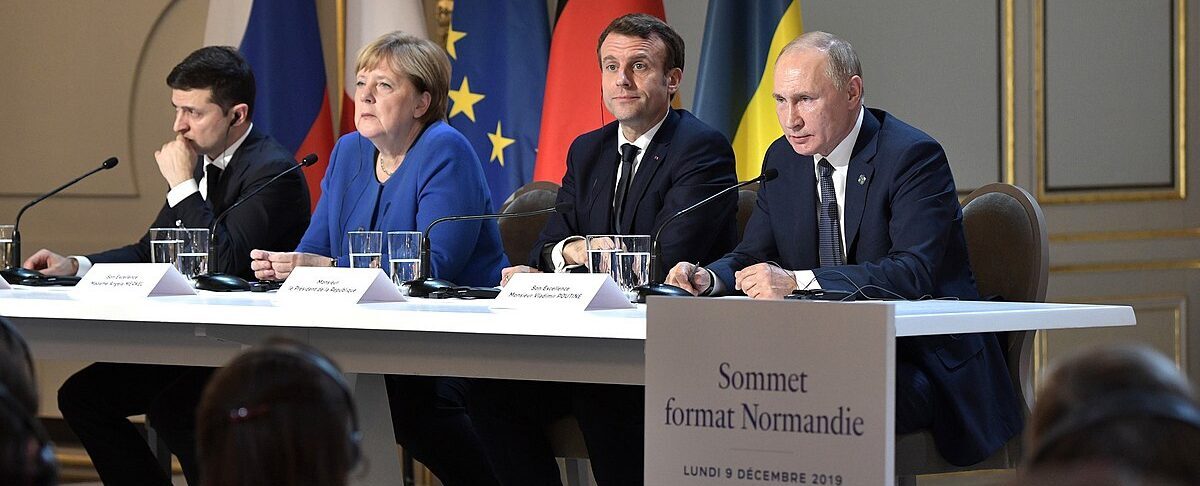Two countries, two elections: the rise of populism in Europe
Budapest, 3 April: The newly re-elected Prime Minister of Hungary, Viktor Orbán, speaks to a crowd of his supporters. He attributes his recent victory to his Christian democratic, conservative, and patriotic politics. “We have scored a victory so big, that it can be seen from the moon,” he claims grandly. “But definitely from Brussels,” he continues.
Fast-forward three weeks, and half a continent away in Paris, President Emmanuel Macron addresses the triumphant mass gathered at the base of the Eiffel Tower, perhaps the most recognisable symbol of the French Republic. “From now on,” he states (with a far more sombre tone than his Hungarian counterpart). “I am not the candidate of one camp anymore: I’m the president of all of us.”
These two moments concluded two vastly different elections in two vastly different countries, but one word united them both: ‘populism’.
The opposition had effectively forced the election to be a vote on one thing: Orbán’s leadership
Orbán’s Fidesz party took power in 2010 and in the 12 years since, Orbán has transformed the Hungarian state in his own image by gradually undermining national institutions. Orbán openly describes his goal for Hungary as building an “illiberal state” and has been accused of cosying up with dictators, such as Vladamir Putin and Xi Jinping. His regime has been characterised by anti-minority sentiment, limiting LGBT+ rights, segregating ethnic Hungarian and Roma peoples, as well as spouting anti-Semitic and Islamophobic rhetoric. Naturally, this has placed his government at odds with the European Union, of which Hungary is a member state. Orbán often retaliates by accusing the EU of liberal imperialism and clamping down on Hungary’s traditional Christian culture.
However, Orbán’s populist policies have not been universally well-accepted by the Hungarian people, with Fidesz receiving most of its support from older voters in rural areas, and being less popular with younger urbanites.
It was under these conditions that ‘United for Hungary’, a united bloc of all major opposition parties ranging from far-right to socialist, was formed in part due to changes to election laws. The opposition had effectively forced the election to be a vote on one thing – a referendum of Orbán’s leadership.
Nevertheless, after all the votes had been counted, Orbán’s Fidesz coalition had maintained a firm control over the Hungarian parliament. Orbán had put the war in Ukraine front and centre on the ballot by decrying refugees and highlighting the country’s relative low fuel prices and cost of living.
Leader of United for Hungary, Péter Marki-Zay attributed the loss to Fidesz gerrymandering and control over the media, also commenting that “after 12 years of brainwashing, Orbán can always win any election in this country.” The world watched as Orbán cemented his populist vision for Hungary for at least the next four years.
Not even a month later saw yet another momentous election for the future of Europe: the French presidential election. Having whittled down the array of candidates to just two, the incumbent president, Emmanuel Macron faced the far-right populist Marine Le Pen in the second round of voting.
Le Pen has proven that there is an appetite for a French brand of right-wing populism
Macron’s centrist politics has pushed his opposition to the extremes of left and right, in many ways an advantage for the moderate president. What it does mean, however, is that his main threats for defending his premiership have come from the National Rally’s Le Pen and radical left-winger Jean-Luc Mélanchon, who was narrowly defeated by Le Pen in the first round of voting. Like in Hungary, the war in Ukraine, immigration, and the rising cost of living were key issues at the ballot box.
However, Macron struggled to unify the centre and the left against the far-right threat. While Mélanchon actively condemned Le Pen, he refused to endorse Macron, leaving many young socialists with the awkward choice of swallowing their pride to vote for the lesser evil, or abstaining, or as one reluctant Macron voter articulated it: “choose between the plague and cholera”. This showed in the numbers, with a turnout of just less than 72%, the worst since 1969.
Macron may have won, but with a substantially reduced mandate and the daunting task of fulfilling his promise to be the “president for all”, while governing over an unsatisfied population, and significant threats from populists on the right and left in the upcoming parliamentary elections.
To be clear, this was still a victory of sort for Le Pen. She may not have secured the title of Madame la Présidente, but she has proven that there is an appetite for a French brand of right-wing populism.
Should we be worried about the rising popularity of the Orbáns and Le Pens of Europe? It still remains to be seen. Macron has staved off the rise of another Hungary-style illiberal democracy in the heart of the EU for the time being. Despite this, his work is ahead of him in reuniting a France divided.

Comments